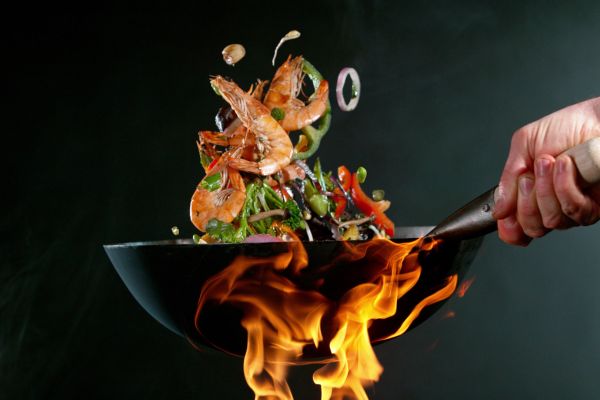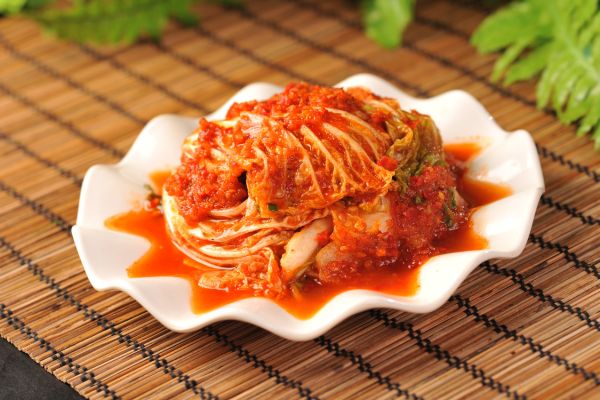In Spanish classes, sometimes a student wants to know the Spanish version of a word that we use in the activities, such as chat or post. But the truth is that every day it is more and more common to use borrowed words from other languages that communicate concepts in an effective and efficient way.
For example, we are starting to see in the news and media, words like playlist instead of lista de reproducción, triggering instead of efecto desencadenante, hyperloop instead of cápsula supersónica, hospice instead of unidad de cuidados paliativos…
I can think of two reasons why in these examples mentioned above, a borrowed word from English is used instead of its Spanish form. The first one is to economise on language: why use three or four words when you can use one?
The second reason has to do with the fact that it is increasingly common for the new generations and young people (at least here in Spain) to speak English. Globalisation manifests itself in this way as well. Therefore, they feel comfortable using concepts such as playlist or triggering. In Spanish classes we also see some examples of how we have adapted words from other languages to Spanish. For example, the Spanish versions of webinar or croissant are webinario and cruasán. But there are borrowed words that we have borrowed as is, and today, most Spaniards know what sushi or muesli is.

In Spanish classes this situation sometimes happens: we are reading an article, taken from a newspaper or a blog, and the author uses borrowed words from other languages (usually English). There are students who have a negative perception of this and want to express themselves only in Spanish.
The reality is though, that if you spend a day in Spain and interact with natives, on the street, in restaurants, in shops, with a group of Spanish friends or relatives, you are going to hear words from other languages. Especially if we talk about new technologies, social media or food.
In this article you will discover twenty borrowed words from eight languages that appear repeatedly in the texts and activities we do in our Spanish classes. If you are interested in finding more words borrowed from other languages, as well as other neologisms in the Spanish language, I invite you to visit the blog of El martes neológico del Instituto Cervantes.
For each of the borrowed words in this article we are going to see what its language of origin is, if the word is currently included in the Dictionary of the Royal Academy of the Spanish Language (RAE), its meaning, a bit of history about its origin and an example of its use in context.
Language: German
Included in the dictionary of the RAE (2023): Yes
Meaning and origin: muesli is a food made up of cereals, dehydrated fruits and nuts. It is mixed with milk or yoghurt and is usually eaten for breakfast.
It was the Swiss doctor and nutritionist Maximilian Bircher-Benner (1867-1939), who invented muesli. In his clinic (opened in 1904) he prescribed to his patients a mixture of rolled oats, grated apple and dried fruit, which resembled the usual food of the shepherds of the Swiss Alps. Bircher-Benner verified the numerous effects of a diet based on raw vegetables and whole grain products.
Example: Siempre llevo una barrita energética de muesli en el bolso por si tengo hambre.
Language: German
Included in the dictionary of the RAE (2023): No
Meaning and origin: the bretzel or brezel (pretzel) is a bow-shaped bun, which can be sweet or salty.
Its origin is located in the German region of Bavaria and the word comes from the Latin brac(c)hium, which means ‘arm’. This refers to the shape of the pretzel, which is reminiscent of interlocking arms.
Example: En la panadería que hay en mi barrio hacen unos bretzels buenísimos.
Language: Chinese
Included in the dictionary of the RAE (2023): No
Meaning and origin: feng shui is a Chinese technique of Taoist origin that seeks balance through the arrangement of elements in space. The objective is to achieve harmony with the forces of nature, in this way, the flow of vital energy is favoured.
The principles of feng shui can be applied to architecture and urbanism, for this reason, this technique became popular in Europe and the US in the 20th century, since it is thought that a correct structure and proper furniture placement can have a positive influence on the people who inhabit a space.
Example: Marta ha contratado a un arquitecto que es experto en feng shui para diseñar su casa de campo.
Language: Chinese
Included in the dictionary of the RAE (2023): Yes
Meaning and origin: a wok is a deep, wide pan, usually with one or two handles. It is thought to be native to Chinese cuisine. It is used to stir-fry foods and is a very healthy way of cooking.
A wok can also be a dish prepared using the cooking utensil (wok).
Example:
Tomaré un wok de verduras.
Me han regalado un wok por navidad.
Language: Korean
Included in the dictionary of the RAE (2023): No
Meaning and origin: kimchi is a staple food of Korean cuisine consisting of fermented cabbage flavoured with garlic, ginger, fermented prawn paste, red pepper powder, and scallions. It has a spicy and salty taste.
The Korean people have always been experts in the manufacture of fermented foods and the origin of kimchi dates back to the Three Kingdoms period (37 BC – 7 AD).
In Korea, kimchi is made during the winter by women fermenting plant foods in traditional ceramic pots.
Example: El sábado fuimos a cenar a un restaurante coreano y comí una sopa de kimchi que estaba buenísima.


As you can see, before each word is the article in parentheses to indicate the gender. In Spanish, all nouns have a gender (masculine or feminine) and if we borrow words from languages where there is no gender in nouns, we have to assign them a gender.
Language: French
Included in the dictionary of the RAE (2023): No
Meaning and origin: in French, coulant means ‘flowing’ or ‘sprouting’. The coulant is a round-shaped chocolate cake, which when you cut and open it, the chocolate inside begins to flow, which is hot and creamy.
It was in 1981 when chef Michel Bras patented his coulant recipe. Quickly, this delicious dessert became popular and began to be present in the most prestigious restaurants, in pastry shops and in French homes.
Example: Alicia está haciendo un curso de repostería francesa y esta semana ha aprendido a hacer el coulant.
Language: French
Included in the dictionary of the RAE (2023): No
Meaning and origin: a déjà-vu is the sensation of having lived before a situation that they are actually experiencing for the first time and that produces amazement and strangeness in the person experiencing it.
This term was coined in 1876 by the French thinker Émile Boirac. Déjà-vu in French means “already seen”.
Example: Hace unos años, viajé a Roma y al visitar la Plaza Navona tuve un déjà-vu: tuve la sensación de haber estado allí antes. Fue muy extraño.
Language: Japanese
Included in the dictionary of the RAE (2023): No
Meaning and origin: ramen is a Japanese soup with long noodles, meat broth, and vegetables. It is a dish that is considered a national symbol or icon in Japan.
Originally, ramen was a Chinese dish, but it became popular in Japan during the 19th century. First, typically Japanese ingredients were incorporated into the ramen recipe. Later, it experienced a great expansion in the Japanese country and today, it is not only consumed in restaurants but also in fast food establishments, in street stalls, in Japanese private homes or you can buy it prepared in supermarkets. It is one of the most accessible, nutritious and cheap foods in Japan.
Example: El año pasado fuimos a comer ramen a un restaurante japonés que hay en el centro de Madrid.
Language: Japanese
Included in the dictionary of the RAE (2023): Yes
Meaning and origin: it is one of the most important dishes of Japanese cuisine and one of the most popular internationally. Its ingredients are rice seasoned with rice vinegar, sugar, salt and combined with ingredients such as raw fish, shellfish, vegetables, etc.
The first reference to sushi in Japan dates from the year 718 in the Yōrō Code. In its long history, sushi has had important changes in its evolution. The first of these was in the Muromachi period (1336 – 1573), replacing fermentation with the use of vinegar. The second was when Hanaya Yohei invented a smaller variety of sushi that could be eaten with chopsticks or with your hands. This marked the beginning of sushi as fast food in Japan.
In the 20th century, its popularity spread internationally.
Example:
Language: Japanese
Included in the dictionary of the RAE (2023): No
Meaning and origin: it is a type of Japanese alternative medicine that uses the laying on of hands or therapeutic touch to promote physical or emotional healing. It is included within the ‘energy therapies’.
Scientific research has found no evidence that reiki is effective as a treatment for diseases such as cancer, diabetes, anxiety, or depression. For this reason, it is recommended that reiki be used as a complementary and/or preventive therapy.
Reiki is a therapy that is more than 3,000 years old, but it was little popular until in 1922, when Mikao Usui, a Japanese monk and professor, rescued it and founded the Usui Reiki Ryoho Gakkai school. This was the first step to start expanding the use of reiki worldwide.
Example: La acupuntura, el reiki y la homeopatía son terapias alternativas que se están popularizando en España.


There is only one adjective included in this selection of borrowed words from other languages. It is the adjective detox, which we have taken from English, and like all adjectives in Spanish, as we see in Spanish classes, it has the same gender as the noun it describes.
Language: English
Included in the dictionary of the RAE (2023): No
Meaning and origin: the adjective detox means detoxification of the body. This cleansing of the body is achieved by eating specific foods to help our body eliminate impurities, waste and toxins.
It has become very popular in expressions such as dietas detox, zumos detox or batidos detox.
Example: Sergio se ha puesto a dieta y todas las mañanas toma un batido detox para desayunar.
Language: English
Included in the dictionary of the RAE (2023): No
Meaning and origin: trekking is a sport that is practised outdoors in natural settings (mountains, forests, etc.) that are difficult to access, without signposting and for long periods of time. It is often confused with hiking (which is signposted) or field trip (easily accessible areas).
The origin of the word trekking can be found in the British colony of South Africa, when in the 19th century, peasants of Dutch origin undertook a migratory march called the Great Trek, while fleeing the coast inland. They were called trekkers. Later, this term was adopted to refer to the long walks that climbers and mountaineers took during their expeditions through the mountains of the Himalayas and South Africa.
Example: Mi hermana se ha apuntado a un club para hacer trekking, pero yo prefiero hacer senderismo.
Language: English
Included in the dictionary of the RAE (2023): No
Meaning and origin: an influencer is a person with the ability to influence an audience of potential buyers of a product, recommending products or services on social media.
The origin of these influencers is linked to the evolution of social media, which has changed the way of selling and advertising.
Example: Paula Echevarría es una de las mejores influencers de España. Mientras que para los hombres, Jon Kortajarena es el mejor influencer español.
Language: English
Included in the dictionary of the RAE (2023): No
Meaning and origin: A nugget is a food, usually round or rectangular in shape, made from a shredded chicken batter that is breaded and deep-fried.
The inventor of the nuggets was the American Robert C. Baker (1921-2006). In 1963, the market was saturated with chicken, since it had been produced in large quantities to supply the armed forces during World War II. Added to this circumstance was the fact that more and more women were entering the labour market, therefore, the customs at the time of cooking and eating were changing.
As a result, Baker hit the target and invented chicken nuggets. In 1983, the McDonald’s fast food chain launched McNuggets and made them popular worldwide.
Example: Vamos a preparar algo de picoteo para cenar y ver una peli. ¿Qué te parecen unos nachos, unas patatas fritas y unos nuggets de pollo?
Language: English
Included in the dictionary of the RAE (2023): No
Meaning and origin: a post is an entry, a message, an article or a publication that is shared on a public platform on the Internet.
As has happened with the word influencer, the evolution of technology and the increase in users of social media have led us to adopt new words, generally borrowing them from English.
Example: Los viernes publicamos posts culturales en nuestro grupo de Facebook.


As you will have seen throughout this article, in the examples in context, when we take a word from another language, the Fundéu recommends writing them in italics.
Language: Italian
Included in the dictionary of the RAE (2023): No
Meaning and origin: pannacotta is a dessert from northern Italy, the Piedmont region. It means ‘cooked cream’ and is made from cream or gelled milk to which strawberry jam is usually added.
Example:
Language: Italian
Included in the dictionary of the RAE (2023): No
Meaning and origin: the expression dolce vita refers to a carefree, relaxed and even libertine lifestyle.
The origin of this expression is in the film ‘La Dolce Vita’, shot and directed by Federico Fellini in 1959.
Example: Desde que mi padre se ha jubilado vive la dolce vita.
Language: Italian
Included in the dictionary of the RAE (2023): No
Meaning and origin: stracciatella ice cream is made by mixing chocolate shavings with cream and fresh milk seasoned with vanilla extract and sugar.
Example: ¡Qué calor hace! Voy a comprar una tarrina de helado de stracciatella.
Language: Italian
Included in the dictionary of the RAE (2023): No
Meaning and origin: risotto is a traditional dish of Italian culture that originated in the 16th century in northwestern Italy, in an area between Verona and Milan, where rice was grown. This meal consists of cooking rice al dente, with a very creamy texture, adding mushrooms, asparagus and Parmesan cheese.
Example: Necesitamos comprar setas y queso parmesano para hacer un risotto el domingo para comer.
Language: Portuguese
Included in the dictionary of the RAE (2023): No
Meaning and origin: capoeira is an Afro-Brazilian martial art that mixes body expression, singing and music. It was the way of fighting for the African slaves in Brazil. They practised it in a hidden way like a dance. In this way, they maintained their traditions and trained for their personal defence without being repressed by their lords.
Example: Teresa se ha apuntado a clases de capoeira.


While writing this article, it has caught my attention that we use words from different languages, all related to gastronomy. I was delighted to discover it! In our Spanish classes we always keep in mind the cultural component of the language, but it is surprising how powerful a role gastronomy plays across cultures.
Learn more borrowed words and other curiosities of Spanish, in a well-structured way and with the guidance and experience of an accredited native teacher. I invite you to explore our catalogue of Spanish classes or our Membership Programme. You can book your trial lesson today with us and meet your teacher.
It is true that there are linguists, academics, teachers… even students of Spanish as their second language, who are somewhat reluctant to use (and/or abuse) these borrowings from other languages. But the reality is that we are more connected than ever with people from other countries and other cultures and, just as bilingualism is becoming more and more widespread, the borrowing of words from other languages is a phenomenon that each time we are more permeable.
